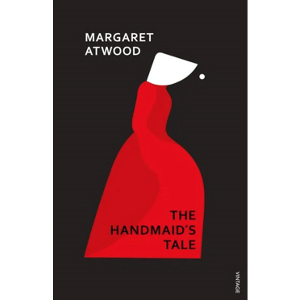Utopia as a Challenging Imagination of the City
Religion and Urbanity in The Handmaid’s Tale

Religion and Urbanity in The Handmaid’s Tale

Prof. Dr. Daria Pezzoli-Olgiati
Research project at the Humanities Centre for Advanced Studies/Kolleg-Forschungsgruppe (KFG): "Religion and Urbanity: Reciprocal Formations", University of Erfurt, summer term 2024
In political programmes, in fictional narratives, in the arts, film and media, and in popular culture, Utopia plays a crucial role. On the one hand, Utopia is a challenging thought in which ideas about human culture are elaborated. Being a condensed, and ambivalent, imagination of a society in a topographical nowhere, Utopia merges positive and negative concepts of sharing a living place. On the other hand, Utopia is materialised in literature and media. As a narrative genre, it often depicts human living by means of imaginary cities: Utopia drafts ideas, expectations, desires, and fears of human communities with various forms of organisation, strategies of power, familial networks, and architecture. In this project, Utopia is addressed as an urban reflection on human culture that, over the course of the centuries, has undergone transformations and adapted to various media.
Particularly, this research focuses on the entanglements of Dys-/Utopia, urbanity and religion in Margaret Atwood's The Handmaid's Tale, a novel published in 1985 which has been adapted in various forms and is constantly evolving into a striking conglomerate of narratives all over the world. Both in the original novel and in the multi-layered receptions it has inspired, the mutual relationship of urbanity and religion is paramount. The project aims at deepening this contemporary dys-/utopian narrative by considering following aspects. First, it analyses Atwood's novel of 1985 in light of Utopian traditions in the European history of religion, with particular attention to Christine de Pizan's The Book of the City of Ladies (1405). Second, it analyses the development of the narrative in the contemporary ongoing transmission and adaption processes by means of a comparison between literature, film, and political exploitation of this iconic narrative. Overall, the project aims at elucidating the interdependence of religion and urbanity as comprehensive formations in the tension between utopian reflection, narrative materialisation and the lived city.
Publications
Pezzoli-Olgiati, Daria, Utopian and Dystopian Cities at Work. Challenging Imaginations of the City in Christine de Pizan’s The Book of the City of Ladies and Margaret Atwood’s The Handmaid’s Tale, in: Rau, Susanne/Rüpke, Jörg (Hg.), Religion and Urbanity Online, https://doi.org/10.1515/urbrel.37172999
Blogpost Researching Fictional Entanglements of Religion and a Dystopian Urban Imagination